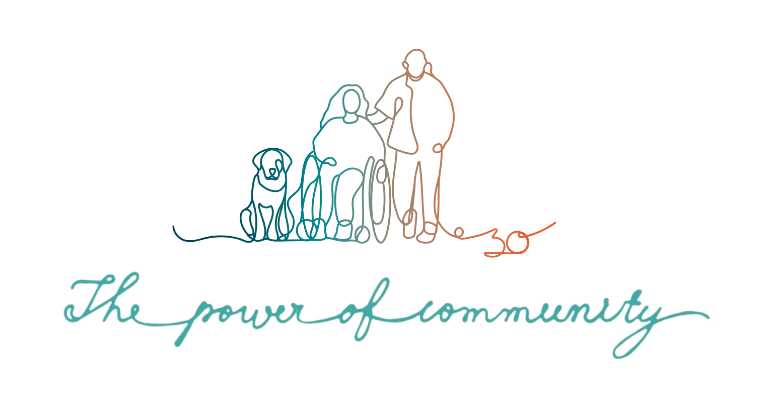Ashley’s Story
Ashley was diagnosed with acute disseminated encephalomyelitis in 2007. Her journey has been marked by resilience and the relentless pursuit of better quality of life, demonstrating the powerful impact of determination and support within the SRNA community.
What message would you like to share with others who don’t know anything about your condition?
I was a happy, healthy, athletic college student blessed with unlimited opportunities for the future when I was stricken with acute disseminated encephalomyelitis (ADEM). For nearly six months, I was unable to communicate via voice or gestures. Fortunately, my parents found and were in contact with SRNA (then the Transverse Myelitis Association) within 48 hours of the onset of symptoms. SRNA provided the foundation for my roadmap to recovery.
What message would you like to share with others who are newly diagnosed with a rare neuroimmune disorder?
It is frightening, especially when there is no reasonable explanation for why it happened. Everyone who encounters a rare neurological autoimmune attack will have a unique recovery. My advice is to never give up on yourself. Fight hard—you’re worth it! Take advantage of all the resources provided by SRNA. You don’t have to face this alone.
How has SRNA impacted your journey?
For over 17 years, I have developed friendships with others in similar situations who can relate personally to what I am experiencing. SRNA staff, members, and associated medical professionals have provided me with a wealth of information that has put me on the right path to continuing my recovery and living my life to the fullest.
I would be a rudderless ship without SRNA. Aside from the medical professionals associated with SRNA, I have yet to be seen by a doctor or therapist (in 17 years) who has had a previous patient with ADEM. This includes seeing specialists at top medical facilities in the country. SRNA provides me access to doctors, therapists, researchers, support groups, camps/symposiums, and other resources that have guided me in my recovery and enhanced my quality of life.
Alan’s Story
Alan’s diagnosis of vascular myelopathy in 2020 introduced him to a world of challenges similar to those faced by others with rare neuroimmune disorders. Although his condition is different, Alan found a welcoming and supportive community within SRNA. His story is a beautiful example of our community’s inclusive spirit, offering support to all who face similar struggles, regardless of their diagnosis.
What message would you like to share with others who don’t know anything about your condition?
Neuroimmune disorders are just one cause of what is more generally known as “myelopathy:” a deficit of the spinal cord. Regardless of origin, all share the same symptoms. Most come on suddenly, while others, like mine, progress slowly and are chronic conditions.
What message would you like to share with others who are newly diagnosed with a rare neuroimmune disorder?
Having a rare neuroimmune disorder, or any myelopathy, is truly a life-changing event creating many new difficulties and limitations that can seem insurmountable. Never give up, though: Turn your difficulties into challenges. There are always ways to adapt and live a full life. Make sure you maintain your relationships with family and friends and let them help. They will enrich your life, and by helping you, you will enrich theirs.
How has SRNA impacted your journey?
SRNA has been invaluable in my journey dealing with a debilitating myelopathy. It’s a tremendous resource of information dealing with the medical and non-medical consequences of myelopathy and rare neuroimmune disorders. In addition, I have been blessed to both receive and been able to give support on a personal level to others and to have found many new friendships through my participation in SRNA’s Peer Mentor Program, support groups, and the biennial conventions.
SRNA engages in a myriad of activities that benefit those with rare neuroimmune diseases and other myelopathies. From medical research grants and patient registries to support programs, including a “quality of life family camp” for patients and their caregivers, SRNA is the most important resource for those suffering from a rare neuroimmune or similar disorder, and the medical professionals and caregivers supporting them.
Becca’s Story
Becca’s relentless pursuit of answers led to her diagnosis of MOG antibody disease in 2016, before the test for this condition became widely available. Her story is one of perseverance and the quest for knowledge in the face of uncertainty. Becca’s journey illustrates the importance of research, advocacy, and the collective strength of our community.
What message would you like to share with others who don’t know anything about your condition?
MOGAD is a rare condition with many different presentations. One person’s experience may be very different from another’s. People may have low vision, no vision, neuropathic symptoms like pain, headaches, tingling and numbness, and/or bladder and bowel problems. Oftentimes, patients have increased fatigue and brain fog. Anecdotally, we know there are many individuals who suffer from chronic headaches, as well as hearing issues. There is ongoing research to better understand these differing presentations.
What message would you like to share with others who are newly diagnosed with a rare neuroimmune disorder?
Take your time to process the new diagnosis and grieve. And when you’re ready, find others in the community to connect with. Having support from people who truly understand and empathize makes coping with MOGAD a lot more manageable. There will still be hard days, but you might grow to appreciate the new perspective that comes with navigating rare disease.
How has SRNA impacted your journey?
SRNA has connected me with so many amazing, thoughtful, and inspiring people within the rare disease community. My time at SRNA’s family camp during the last two years was one of the best weeks of my life. It is truly magical to be around people who understand the complex world of rare diseases. I am incredibly grateful for SRNA and the important work they do.
Without the help of donors, we would not be where we are today in terms of having a diagnostic test and a team of researchers committed to understanding MOGAD and its impact on patients. SRNA is focused on improving care for many rare diseases that are often overlooked by the general medical community. Donations to SRNA support research, patient advocacy, the creation of community, and ongoing education.
Abby’s Story
Abby was initially diagnosed with transverse myelitis in 2006 and later re-diagnosed with acute flaccid myelitis in 2019. Her journey highlights the evolving nature of diagnosis and the enduring spirit required to face these changes.
What message would you like to share with others who don’t know anything about your condition?
TM is a condition that affects people’s physical mobility. While we may look a little different than others, we are just like our able-bodied counterparts, students, athletes, artists, and more. The “Don’t judge a book by its cover” mentality is important to keep in mind when meeting people with different backgrounds and experiences.
What message would you like to share with others who are newly diagnosed with a rare neuroimmune disorder?
Having a rare neuroimmune disorder is life-changing and can provide unique opportunities. It has allowed me to create a community with others with similar conditions and interests. I have had opportunities to get SCUBA certified, compete in Paralympic swimming, and advocate for others. I would likely not have done any of these things without my disability.
How has SRNA impacted your journey?
SRNA family camp was one of the first experiences I had with the disability community. Going to camp for many years helped to build my confidence and demonstrate all that is possible while living with a rare neuroimmune disorder. Camp gave me mentors to look up to, mentors that I still connect with today in my personal and professional life.
The events and programs that SRNA puts on help create a community and boost the confidence of those living with rare neuroimmune conditions. SRNA also works to educate family, friends, and the general public about each diagnosis. SRNA does amazing work and has helped me feel comfortable with my disability.
Amber’s Story
Amber’s life took an unexpected turn when she was diagnosed with neuromyelitis optica spectrum disorder in 2012. At 30, she faced numerous challenges but remained steadfast in her determination to understand and manage her condition. Amber’s journey reflects her courage and the essential role of community in providing support and hope during difficult times.
What message would you like to share with others who don’t know anything about your condition?
Neuromyelitis optica is a condition that can affect anyone—yourself, your daughter, mother, sister, or brother. It doesn’t discriminate and can strike at any time, often suddenly. Once diagnosed, it’s a lifelong condition. NMO is an invisible disease, meaning its effects are not outwardly visible, making awareness and understanding is important. Learning more about its symptoms and ways to support those affected can make a big difference.
What message would you like to share with others who are newly diagnosed with a rare neuroimmune disorder?
First and foremost, it’s going to be okay. Your feelings, emotions, and experiences are valid. The rollercoaster of emotions you and your family are experiencing is normal. It’s okay to break down and feel overwhelmed; your pain and struggles are legitimate. Take the time you need to stabilize and find your balance. Support is essential—seek out a support group, connect with others who understand NMO, and consider working with a social worker.
How has SRNA impacted your journey?
My involvement with the SRNA has deeply impacted my journey with a rare neuroimmune disorder. SRNA is a patient-centered non-profit organization that truly understands and provides invaluable resources. They offer support, identity, and a sense of family, making the journey less isolating. Their humble and approachable nature, along with the resources they provide, have been so important in helping me navigate this condition and regain a sense of normalcy.
Supporting SRNA is critical because these disorders do not discriminate. NMO can affect anyone, and when it does, it’s overwhelming. SRNA provides a lifeline, offering a place of support and resources that help individuals live normal lives despite their condition. Your donations help keep this vital support system available to those who need it, ensuring that no one has to face this journey alone. Your support can make a profound difference in the lives of those affected by NMO and other rare neuroimmune disorders.
Ashley’s Story
Coming on Aug 8
Alan’s Story
Coming on Aug 15
Becca’s Story
Coming on Aug 22
Abby’s Story
Coming on Aug 29
Amber’s Story
Coming on Sept 5
Join our Matching Campaign
Achieve Twice the Impact!
Until the end of 2024, your donation will be doubled across all fundraisers and donations thanks to the generosity of SRNA’s board of directors, who will match every dollar raised up to $200,000.
Join us in continuing our mission to empower, educate, and support those affected by rare neuroimmune disorders. By contributing, you are making it possible for more individuals like Francisco, Ashley, Alan, Becca, Abby, and Amber to thrive.
Donate on our website
Honor someone special by making a gift on our website.
Give by check or stock
We also accept donations by check, stock, and wire transfer.
Every donation, big or small, helps us in our fight to end rare neuroimmune disorders, together.







